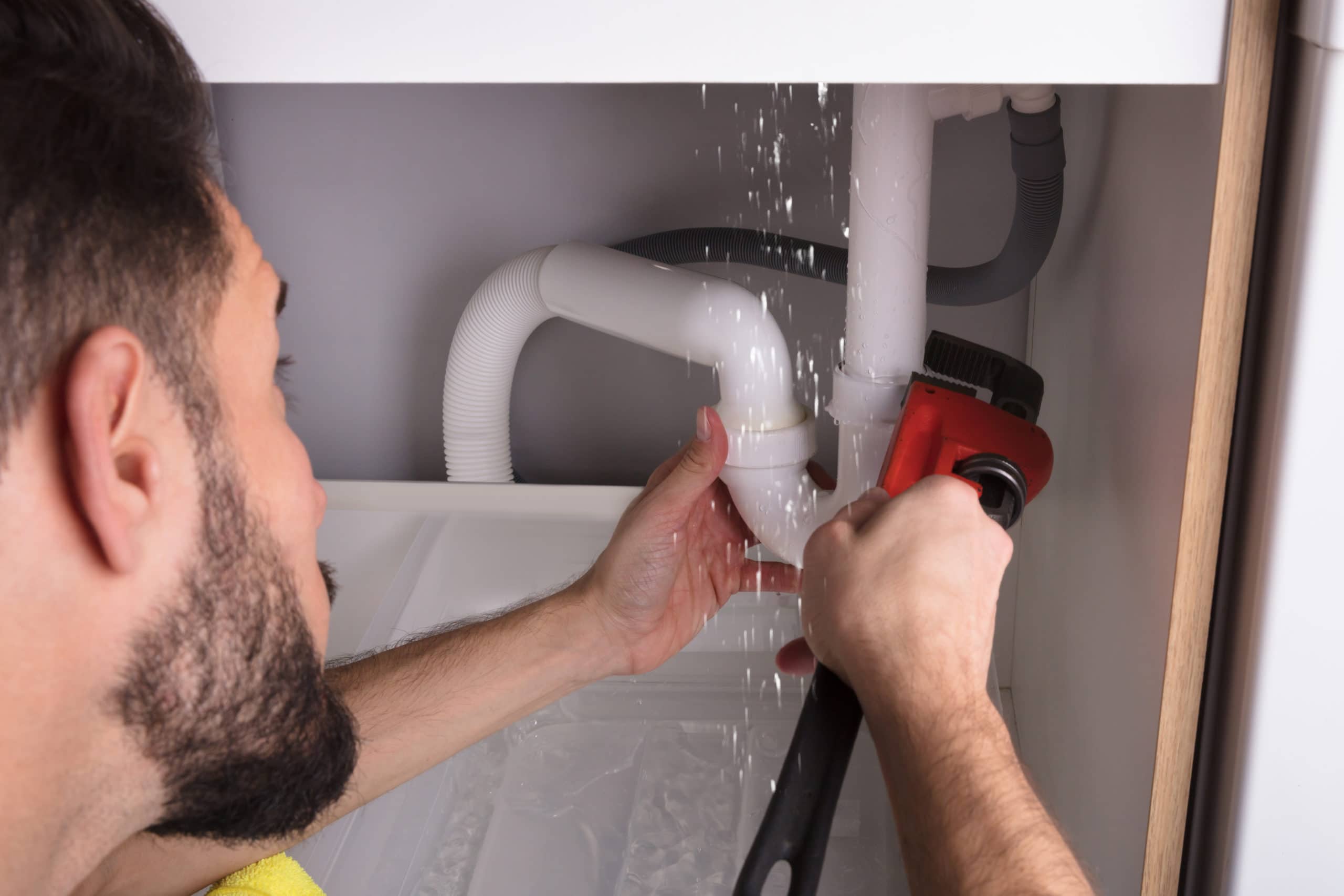Water hammer or resonance is a common plumbing problem that can cause loud banging, hissing, and other noises in your home’s pipes. This occurs when there is a sudden change in pressure within the plumbing system. This causes the water to vibrate and create loud banging noises, which can be annoying and disruptive. Fortunately, there are several things that you can do to prevent a water hammer and eliminate the loud noise it causes.
What is a water hammer?
A water hammer is a banging noise that occurs when water flowing through pipes changes speed.
The sudden change in water pressure, either due to suddenly stopping the flow or starting it up again, can cause a noise similar to that made by an air compressor. This is known as a water hammer.
If you’ve ever turned off your faucet and heard the sound of running water continue under the sink for some time afterward, you’ve experienced a water hammer for yourself. The noise comes from pipes that aren’t able to drain completely into their traps when the faucet is turned off.
What Causes Water Hammer
Water hammer is a phenomenon that occurs when the water supply stops abruptly. The sudden stoppage of water flow can cause a shock wave to travel through the plumbing system at about 3,000 miles per hour. This shock can cause damage to your pipes, fixtures, and appliances such as washing machines and dishwashers.
Resonance occurs when water is allowed to flow through long pipe lengths at high velocity. When the flow stops suddenly, air molecules trapped in the pipe are compressed as they rush back to fill the void left by the flowing water. This creates a loud noise that sounds like a hammer hitting metal.
The most common causes of water hammer are:
- A faucet that is left open while other fixtures are running
- A sudden change in water pressure caused by opening or closing a pipeline or valve
- A toilet that has been flushed with a ballcock valve shut (the valve floats up and closes off the flapper)
How Can I Tell If It’s a Water Hammer?
A water hammer is a loud banging noise caused by the stoppage of water flow in a plumbing system. This sound can be heard throughout the house and maybe mistaken for an earthquake. When someone turns off a faucet or shuts off a toilet, the noise is often heard. The sudden stoppage of water flow causes turbulence in the pipes and results in a loud bang.
The water hammering noise can also occur when heavy rainfalls and causes pressure to build up inside your pipes. When the pressure reaches its maximum point, it suddenly releases, causing vibrations that travel through your walls and floors until they are heard as a loud banging sound.
If you suspect you have a problem with water hammer, use these tips to help locate the source:
- Listen to the sound of running water while standing in different rooms in your home. The sound will be louder when it is closer to the source of the problem.
- Look for signs of physical damage caused by vibration from the pipe’s repeated hitting against something else — like cracks in drywall or ceiling tiles.
- Check for possible sources of vibration that may be causing resonance in pipes, such as nearby electrical lines and appliances (such as refrigerators).

How to Fix a Water Hammer
Water hammer or resonance is a phenomenon that can cause loud noises in your home’s pipes. The noise is caused by a shock wave traveling through the pipes and causing them to vibrate. This can be caused by closing a faucet, flushing a toilet, or filling the tub.
A Water hammer can damage pipes over time, so it’s essential to fix it as soon as possible. Here are some steps you can take to find the source of the water hammer and fix it:
- Check for leaks. You can usually hear a leak when you turn on the faucet, and listen for any sounds that don’t go away when you stop running water. Try this test in several different rooms of your house, including bathrooms, kitchens, and utility rooms.
- Check around the base of your home’s exterior walls for cracks in the foundation, which may cause water to seep out and create moisture that causes mold growth inside walls, ceilings, floors, and other areas where it’s not easily visible. This is often necessary to get rid of loud noises from water pipes.
- Replace old faucets with new ones made from quieter materials such as metal or plastic instead of ceramic or chrome-plated brass. These materials tend to make less noise than more senior types of faucets do when they’re turned on or off or when they’re used over time because they tend not to wear out as fast as older ones do when they’re used regularly over time in your home’s plumbing system(s).
- Put insulation around exposed pipes in areas where it gets cold enough outside that there’s frost on the ground during winter months (typically below freezing temperatures). When they freeze and thaw, these exposed pipes don’t make a loud banging sound.
- If you have galvanized steel pipe installed in your home and you’ve had problems with corrosion, consider replacing it with a copper pipe. This will help prevent further corrosion damage from happening again in the future.
How Does The Water Hammer Arrestor Work?
A water hammer arrestor is a device used to prevent or stop the transmission of shock waves through the pipes in plumbing systems when there is a sudden change in pressure. It works by absorbing the energy from these shock waves so that they cannot travel through the water supply lines. This device prevents damage to pipes or fixtures caused by these shock waves.
The water hammer Arrestor does this by having a check valve installed on each side of the pipe where the water hammer occurs, allowing for uninterrupted water flow through the pipes. The check valves are designed to close when there is an increase in pressure within them, so they can prevent any backflow from occurring due to the water hammer.
The most common type of water hammer arrestor is a compression fitting that fits onto the pipe where it enters a fixture or appliance. When you turn off the water, a sudden drop in pressure causes a shock wave to travel through the pipe. When this pressure wave reaches the end of the pipe, it can cause damage to your faucet or appliance if an arrestor does not protect it.
A compression fitting works to slow down this shock wave so that it doesn’t reach your faucet or appliance as quickly. Instead of causing damage, it acts as a cushion for your plumbing system when you shut off your water supply.

Final Thoughts
One of the best ways to fix a noisy water pump is to find the cause of the noise. There are two common culprits: water hammer and pump resonance. The best way to avoid water hammer or resonance is to pay attention to the plumbing and regular maintenance performed by an experienced professional. The best way to prevent water hammer or resonance is to pay attention to a trained professional’s plumbing and routine maintenance.

Amos Christen graduated with a bachelor’s degree in Interior Design from Drexel University — Philadelphia, PA. Since 2003, Amos has worked with top interior design professionals in this area, including architects and interior/graphic/lighting designers. As a skilled interior designer, Amos Christen is highly versed in fine arts and crafts and uses that to supplement his main area of expertise. He often publishes articles related to home décor on several websites, including Sprucetoilets.com, Sprucebathroom.com, and Mybesuitedhome.com. He also contributes to leading interior design magazines.
